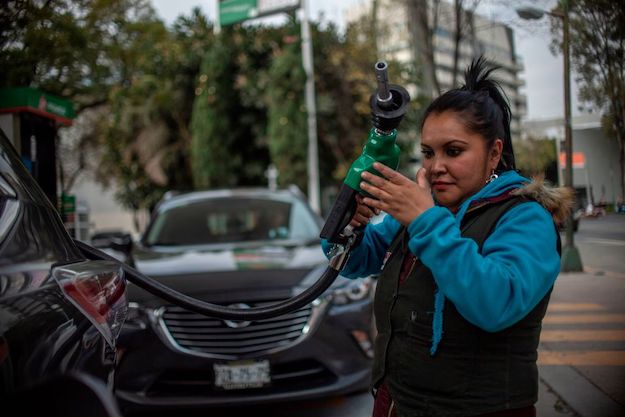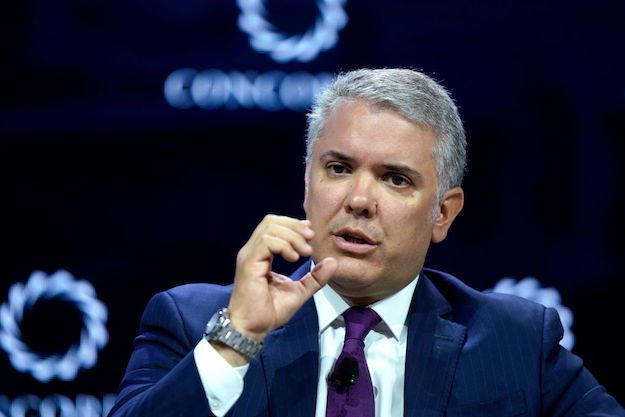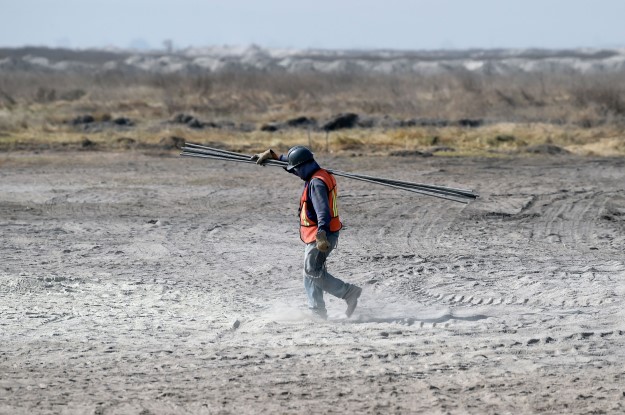Andrés Manuel López Obrador has a vision, but not a plan. His long-term objective to recentralize power is clear, but the specifics of everyday decisions – on everything from social policy to infrastructure investment – remain obscure.
The danger of this improvisational form of government is not simply that the economy will fail to achieve higher rates of growth (that is almost already a given). It is that financial markets will react negatively to so much uncertainty. The recent downgrade of state oil firm Pemex could be the beginning.
Fitch downgraded Pemex last month because of what it called “continued deterioration” of its credit-profile and underinvestment in its production areas. López Obrador’s response, simply to attack the ratings agency as “hypocritical,” must be understood in a context in which the president is running things basically on his own. There are no public policy debates, only objectives and actions that López Obrador instructs his people to carry out.
The president clearly believes that by announcing his objectives or actions, things will simply happen. In fact, he’s campaigning on a permanent basis and rallying the crowds. That approach has worked so far: his approval ratings are over 80 percent. His popularity comes in part because, at least rhetorically, he is addressing people’s concerns.
Everybody knew about stolen gasoline, about how much corruption there is and how deep social divides are. By talking about these issues and, at least in some cases, acting upon them, the public see in the president someone who is finally doing something about the issues that brought him to the national palace. People have been willing to stand in line for hours to get gasoline not because the issue is being fixed, but because the president is facing it.
But what happens when it becomes clear that the president has failed to deliver change? At some point, the public will want answers in the form of prison sentences for the corrupt or better economic performance. But AMLO’s policies do not appear likely to take Mexico down that road. He has already expressly ruled out pursuing past corruption, and economic growth is unlikely to materialize in the absence of more investment, both public and private.
Fitch’s decision should have been a warning that things could easily get dicey down the road, and compelled López Obrador to change course. Instead, he attacked and kept going.
The result of all this is to put private investors, both domestic and foreign, on wait-and-see mode. The broader pressures on the economy won’t help in that regard. First, there’s uncertainty stemming from USMCA discussions in the U.S. Congress and the potential demise of NAFTA without having ratified the new agreement. Then there’s the situation with Mexico’s energy sector.
Secretary of Energy Rocío Nahle recently announced the launch of a new oil refinery in Dos Bocas, Tabasco, the president’s home state. Nahle indicated that it would be wholly owned by Pemex and that there would be a restricted tender, by invitation only. In other words, it will be financed by Pemex, whose financial accounts are, in fact, indistinguishable from those of the federal government.
Several months ago, both Fitch and Moody’s warned of the possibility of a rating downgrade should the government proceed with the Dos Bocas refinery. Assuming the two ratings agencies proceed with their earlier warning, the federal government’s accounts could be affected. That could easily trigger a market run.
López Obrador has opened his administration on an enormous number of fronts. He’s launched, or is supporting, a series of labor actions geared to undermining current union leadership; he has attacked former presidents (though, oddly, not his predecessor Enrique Peña Nieto, the man who made it possible for him to win); he’s fighting with several governors on budgetary matters; and he has abandoned the war against the drug cartels. Some of these actions may make sense, others are just shots in the dark. The common denominator is that there’s not a policy behind any of them that has been analyzed and is being adhered to. Each action is independent of the rest, except for the broader goal of concentrating power.
The president is running the government on his own. He shows up every morning for a 6 a.m. security meeting and then talks to the press for an hour or longer where he sets the agenda. The members of the Cabinet, usually looking sleepy, stand behind as part of the scenery but say nothing.
Should things not work out the way the president expects and assumes, the real issue is whether he’ll begin to blame others for the results or if he’ll change course. His reaction to the Fitch downgrade suggests it’ll be the former: Rather than realizing that it was nothing more than a warning, albeit a serious one, he decided to fight things out in the street. He assumes, and has said, that everybody would have to submit to the president’s priorities, including the financial markets; the problem is that that’s not the way the world works in the 21st century, least of all for an economy as open as Mexico’s.









